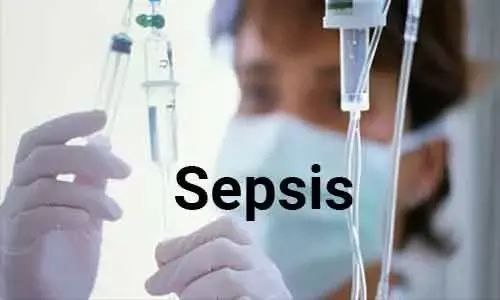- Home
- Medical news & Guidelines
- Anesthesiology
- Cardiology and CTVS
- Critical Care
- Dentistry
- Dermatology
- Diabetes and Endocrinology
- ENT
- Gastroenterology
- Medicine
- Nephrology
- Neurology
- Obstretics-Gynaecology
- Oncology
- Ophthalmology
- Orthopaedics
- Pediatrics-Neonatology
- Psychiatry
- Pulmonology
- Radiology
- Surgery
- Urology
- Laboratory Medicine
- Diet
- Nursing
- Paramedical
- Physiotherapy
- Health news
- Fact Check
- Bone Health Fact Check
- Brain Health Fact Check
- Cancer Related Fact Check
- Child Care Fact Check
- Dental and oral health fact check
- Diabetes and metabolic health fact check
- Diet and Nutrition Fact Check
- Eye and ENT Care Fact Check
- Fitness fact check
- Gut health fact check
- Heart health fact check
- Kidney health fact check
- Medical education fact check
- Men's health fact check
- Respiratory fact check
- Skin and hair care fact check
- Vaccine and Immunization fact check
- Women's health fact check
- AYUSH
- State News
- Andaman and Nicobar Islands
- Andhra Pradesh
- Arunachal Pradesh
- Assam
- Bihar
- Chandigarh
- Chattisgarh
- Dadra and Nagar Haveli
- Daman and Diu
- Delhi
- Goa
- Gujarat
- Haryana
- Himachal Pradesh
- Jammu & Kashmir
- Jharkhand
- Karnataka
- Kerala
- Ladakh
- Lakshadweep
- Madhya Pradesh
- Maharashtra
- Manipur
- Meghalaya
- Mizoram
- Nagaland
- Odisha
- Puducherry
- Punjab
- Rajasthan
- Sikkim
- Tamil Nadu
- Telangana
- Tripura
- Uttar Pradesh
- Uttrakhand
- West Bengal
- Medical Education
- Industry
Ultrashort-acting β-blockers lower mortality in patients with septic shock: Study

Japan: The use of ultrashort-acting β-blockers (such as esmolol and landiolol) significantly lowered 28-day mortality in sepsis patients with persistent tachycardia despite initial resuscitation, finds a recent study in the journal Chest.
Historically, the use of β-blockers is relatively contraindicated for a septic shock as they may lead to cardiac suppression. On the other hand, there is an increasing interest in the β-blockers use for the treatment of patients with sepsis with persistent tachycardia despite initial resuscitation.
Osamu Nishida, Fujita Health University School of Medicine, Aichi, Japan, and colleagues, therefore, aimed to determine whether ultrashort-acting β-blockers such as esmolol and landiolol improve mortality in patients with sepsis with persistent tachycardia despite initial resuscitation in a systematic review and meta-analysis
For this purpose, the researchers searched the online databases for randomized controlled trials (RCTs) that compared the mortality of patients with sepsis and septic shock treated with esmolol or landiolol. Seven RCTs with a pooled sample size of 613 patients were included. Of these, six RCTs with 572 patients reported 28-day mortality.
Key findings of the study include:
- Esmolol or landiolol use in patients with sepsis and septic shock was significantly associated with lower 28-day mortality (risk ratio, 0.68).
- Unimportant heterogeneity was observed (I2 = 31%).
- The absolute risk reduction and number of patients to be treated to prevent one death were 18.2% and 5.5, respectively.
"Our findings show that the use of ultrashort-acting β-blockers such as esmolol and landiolol in patients with sepsis with persistent tachycardia despite initial resuscitation was associated with significantly lower 28-day mortality," concluded the authors.
Reference:
The study titled, "Effect of Ultrashort-Acting β-Blockers on Mortality in Patients With Sepsis With Persistent Tachycardia Despite Initial Resuscitation: A Systematic Review and Meta-analysis of Randomized Controlled Trial," is published in the journal Chest.
DOI: https://journal.chestnet.org/article/S0012-3692(21)00035-0/fulltext
Dr Kamal Kant Kohli-MBBS, DTCD- a chest specialist with more than 30 years of practice and a flair for writing clinical articles, Dr Kamal Kant Kohli joined Medical Dialogues as a Chief Editor of Medical News. Besides writing articles, as an editor, he proofreads and verifies all the medical content published on Medical Dialogues including those coming from journals, studies,medical conferences,guidelines etc. Email: drkohli@medicaldialogues.in. Contact no. 011-43720751



